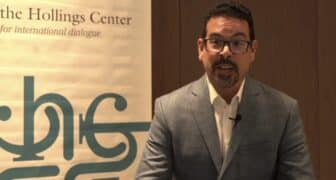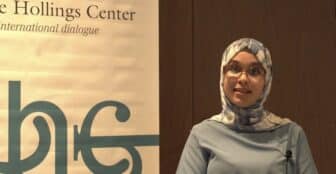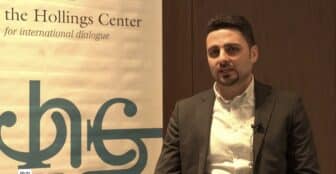The worldwide impact of the COVID-19 pandemic has caused various problems in the production of and access to food in Turkey. While the vacant supermarket shelves became the symbol of the panic created by the pandemic, food businesses and restaurants became the sector that felt the most negative economic effects of the epidemic.In the medium and long term, the effects of the pandemic could create a global food crisis. How will countries with different levels of development cope with the disruptions in food production and distribution? What are the lessons learned from the pandemic crisis?
This video is in Turkish with English subtitles.
Dr. Mustafa Bayram is a faculty member of Gaziantep University’s Department of Food Engineering. He served as Dean of Engineering Faculty and Technology Transfer Office in the previous term. As well as being a faculty member at the university, he is the coordinator of UNESCO Historical Silk Roads Food and Gastronomy Scientific Research Group and TABADER Chairman of the Board. He is also on the editorial boards of three international scientific journals and three national journals. He is one of the authors of The Future of Food.
Dr. Sezin İba Gürsoy is a faculty member at the International Relations Department of Kırklareli University. She completed her Ph.D. at Istanbul University in European Studies in 2013. Dr. Gürsoy worked as a visiting researcher at the University of Central Florida for post-doctoral research in 2015. Her research interests include water and food security, transboundary environmental issues, climate change, and European Union-Turkey relations. In addition, she currently is conducting a scientific research project to increase the environmental awareness of university students. She has articles published in journals such as Water International and the Journal of Environmental Studies and Sciences. She regularly contributes to the T24 Market annexes on international policy issues, particularly on environmental issues.


